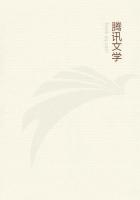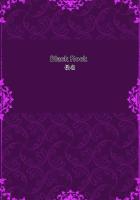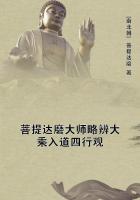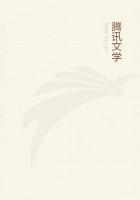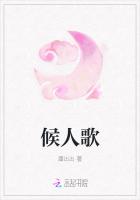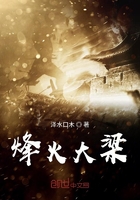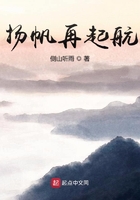Very different from the animals we have as yet considered are the Cephalopoda and the Crustacea. For these have absolutely no viscera whatsoever; as is indeed the case with all bloodless animals, in which are included two other genera, namely the Testacea and the Insects.
For in none of them does the material out of which viscera are formed exist. None of them, that is, have blood. The cause of this lies in their essential constitution. For the presence of blood in some animals, its absence from others, must be included in the conception which determines their respective essences. Moreover, in the animals we are now considering, none of those final causes will be found to exist which in sanguineous animals determine the presence of viscera. For they have no blood vessels nor urinary bladder, nor do they breathe; the only part that it is necessary for them to have being that which is analogous to a heart. For in all animals there must be some central and commanding part of the body, to lodge the sensory portion of the soul and the source of life. The organs of nutrition are also of necessity present in them all. They differ, however, in character because of differences of the habitats in which they get their subsistence.
In the Cephalopoda there are two teeth, enclosing what is called the mouth; and inside this mouth is a flesh-like substance which represents a tongue and serves for the discrimination of pleasant and unpleasant food. The Crustacea have teeth corresponding to those of the Cephalopoda, namely their anterior teeth, and also have the fleshy representative of a tongue. This latter part is found, moreover, in all Testacea, and serves, as in sanguineous animals, for gustatory sensations. Similarly provided also are the Insects. For some of these, such as the Bees and the Flies, have, as already described, their proboscis protruding from the mouth; while those others that have no such instrument in front have a part which acts as a tongue inside the mouth. Such, for instance, is the case in the Ants and the like. As for teeth, some insects have them, the Bees and the Ants for instance, though in a somewhat modified form, while others that live on fluid nutriment are without them. For in many insects the teeth are not meant to deal with the food, but to serve as weapons.
In some Testacea, as was said in the first treatise, the organ which is called the tongue is of considerable strength; and in the Cochli (Sea-snails) there are also two teeth, just as in the Crustacea. The mouth in the Cephalopoda is succeeded by a long gullet. This leads to a crop, like that of a bird, and directly continuous with this is the stomach, from which a gut runs without windings to the vent. The Sepias and the Poulps resemble each other completely, so far as regards the shape and consistency of these parts. But not so the Teuthides (Calamaries). Here, as in the other groups there are the two stomach-like receptacles; but the first of these cavities has less resemblance to a crop, and in neither is the form [or the consistency] the same as in the other kinds, the whole body indeed being made of a softer kind of flesh.
The object of this arrangement of the parts in question is the same in the Cephalopoda as in Birds; for these also are all unable to masticate their food; and therefore it is that a crop precedes their stomach.
For purposes of defence, and to enable them to escape from their foes, the Cephalopoda have what is called their ink. This is contained in a membranous pouch, which is attached to the body and provided with a terminal outlet just at the point where what is termed the funnel gives issue to the residua of the stomach. This funnel is placed on the ventral surface of the animal. All Cephalopoda alike have this characteristic ink, but chief of all the Sepia, where it is more abundant than in the rest. When the animal is disturbed and frightened it uses this ink to make the surrounding water black and turbid, and so, as it were, puts a shield in front of its body.
In the Calamaries and the Poulps the ink-bag is placed in the upper part of the body, in close proximity to the mytis, whereas in the Sepia it is lower down, against the stomach. For the Sepia has a more plentiful supply of ink than the rest, inasmuch as it makes more use of it. The reasons for this are, firstly, that it lives near the shore, and, secondly, that it has no other means of protection; whereas the Poulp has its long twining feet to use in its defence, and is, moreover, endowed with the power of changing colour. This changing of colour, like the discharge of ink, occurs as the result of fright. As to the Calamary, it lives far out at sea, being the only one of the Cephalopoda that does so; and this gives it protection. These then are the reasons why the ink is more abundant in the Sepia than in the Calamary, and this greater abundance explains the lower position; for it allows the ink to be ejected with ease even from a distance. The ink itself is of an earthy character, in this resembling the white deposit on the surface of a bird's excrement and the explanation in both cases is the same, namely, the absence of a urinary bladder. For, in default of this, it is the ink that serves for the excretion of the earthiest matter.
And this is more especially the case in the Sepia, because there is a greater proportion of earth in its composition than in that of the other Cephalopoda. The earthy character of its bone is a clear indication of this. For in the Poulp there is no bone at all, and in the Calamary it is thin and cartilaginous. Why this bone should be present in some Cephalopoda, and wanting in others, and how its character varies in those that have it, has now been set forth.
These animals, having no blood, are in consequence cold and of a timid character. Now, in some animals, fear causes a disturbance of the bowels, and, in others, a flow of urine from the bladder.

